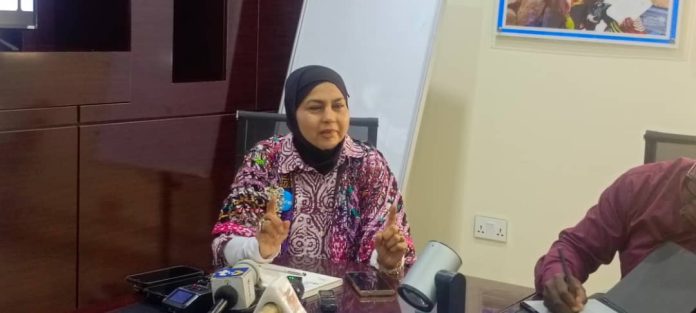The fight against child malnutrition in Nigeria has received a major boost as the Bauchi State Government released ₦300m to the Child Nutrition Fund, with UNICEF matching the contribution to bring the total intervention fund to ₦600m.
The announcement was made by Nuzhat Rafique, Chief of UNICEF’s Bauchi Field Office, during a media interaction on Wednesday. The fund release followed the recent visit of UNICEF Country Representative, Wafaa Saeed, to Governor Bala Mohammed of Bauchi State.
Rafique explained that the intervention would support the procurement of nutrition supplies, including ready-to-use therapeutic food, to save malnourished children. She revealed that local government councils under ALGON also contributed ₦100m, while the Governor pledged to raise the state’s contribution to ₦1bn next year, which UNICEF has also promised to match.
According to UNICEF, long-term solutions are equally important. The agency stressed the need for improved maternal care, proper feeding practices, and community engagement to prevent malnutrition during the critical first 1,000 days of a child’s life.
In a related development, PMW previously reported on Nigeria’s 2025 nutrition budget increase to ₦170bn, a sign of growing government attention to the malnutrition crisis. However, challenges such as high food inflation, weak healthcare systems, and insecurity continue to undermine progress.
Globally, UNICEF has warned that Nigeria has the second-highest rate of stunted children in the world, with 32% of children affected. Northern states bear the heaviest burden, worsened by displacement, poverty, and climate change. UNICEF Nigeria’s Nutrition page outlines ongoing efforts to strengthen food systems and provide lifesaving interventions.
Rafique noted that no child should suffer from malnutrition, describing it as a condition that hinders growth, slows development, and leads to preventable deaths. She emphasised that preventing malnutrition through local food production, expanded feeding programmes, and better vaccine coverage is far more sustainable than treatment alone.
This joint funding commitment between Bauchi State and UNICEF demonstrates the importance of partnerships in reversing the malnutrition crisis. It also highlights how state-level actions can complement national strategies and international support in tackling one of Nigeria’s most urgent public health challenges.



